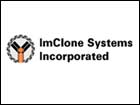|
Icahn's ImClone interest
|
 |
February 15, 2002: 4:20 p.m. ET
Unsolicited bid for biotech may be sign of underlying value of cancer drug.
By Staff Writer Kim Khan
|
NEW YORK (CNN/Money) - Corporate raider Carl Icahn's unsolicited interest in ImClone Systems Inc. could be a sign that while the company is troubled, the value is still there for its cancer drug Erbitux.
ImClone adopted a shareholder rights plan Friday after filings to the Federal Trade Commission and the Justice Department from Icahn's company seeking clearance to acquire up to $500 million in ImClone common stock.
The waiting period for permission expires on March 4.
"The rights are intended to enable all ImClone Systems stockholders to realize the long-term value of their investment in ImClone Systems," ImClone Chairman Robert Goldhammer said. "While it would prevent an unsolicited acquisition of ImClone Systems, the rights plan should encourage anyone seeking to acquire ImClone Systems to negotiate directly with the board prior to attempting an unsolicited acquisition."
Under the stockholder rights plan, each shareholder of record at the close of business Feb. 19 will receive a dividend of one right for each share of common stock held. Each right entitles the holder to purchase one one-hundredth of a share of a new series of participating preferred stock at an initial price of $175. The rights become exercisable after any person becomes the beneficial owner of 15 percent or more of ImClone common stock.
Even with missteps, Erbitux could be hot
Icahn's bid is the first vote of confidence in some time for the embattled biotech, which has been hit by class actions lawsuits for allegedly making misleading statements about the reasons why the U.S. Food and Drug Administration initially rejected Erbitux for treatment of colorectal cancer.
ImClone is also the subject of informal investigations from the Securities and Exchange, the Justice Department and the U.S. House Subcommittee on Oversight and Investigations of the Committee on Energy and Commerce.
Analysts are divided on whether Erbitux can still get quick approval, and the coveted first-in-class advantage, but they said there is still confidence in the drug at ImClone and its marketing and investment partner Bristol-Myers Squibb. They also said all the recent publicity may even increase Erbitux's use when approved.
ImClone now faces a showdown with the FDA on Feb. 26 to see whether the regulators will accept more data on colorectal trials.
"I think it's probably almost 50-50 the FDA says, 'go ahead and give us the documentation for filing,'" said Jim McCamant, biotech analyst for Moors & Cabot and an ImClone shareholder. "The problem is that historically the FDA's always gotten more difficult in these cases."
"From the standpoint of ImClone that's not good news, but its not critical," McCamant said.
Patrick Mooney, analyst with Thomas Weisal Partners, said Erbitux won't get the nod without more testing.
"The application is probably not approvable without a randomized controlled clinical trial," Mooney said.
But even if the FDA refuses to take more data at the upcoming meeting, Erbitux is far from dead.
German drugmaker Merck KGaA said this week it is in talks with Bristol-Myers about possibly sharing Merck's trial data on Erbitux. Merck KGaA is looking for European approval for Erbitux by the end of 2003.
Bristol-Myers will be joining ImClone at the FDA meeting, despite the biotech rejecting Bristol-Myers' demand to restructure their partnership.
Bristol-Myers' demands included ceding control of the regulatory approval process to Bristol-Myers, no more milestone payments for Erbitux, a shift to favor Bristol-Myers with the larger percentage of royalties, and the removal of Sam Waksal, ImClone president and CEO, and COO Harlan Waksal until the cancer drug is approved.
McCamant said there is also enough late-stage trial data to apply for approval for Erbitux to treat head and neck cancer. He said an application for treating head and neck cancer could come in the fourth quarter with approval six months later.
While that is a smaller market, once approved doctors would be free to use Erbitux for any indication they feel would be helpful, including colorectal cancer.
"If they get approved for head and neck after all the publicity and maybe anger at the FDA (regarding the approval process) Erbitux may have the most off-label use of any drug that we've seen," McCamant said.
"I still have strong convictions that the drug works," he said. "I think it's going to be a blockbuster drug with sales of $300 (million)-to-$500 million."
Fighting for "first mover"
ImClone and Bristol-Myers will also be concerned about the quickest way to Erbitux approved as other companies have similar drugs in the works.
Erbitux is an epidermal growth factor, or EGF, receptor inhibitor, which basically means it targets genes important in changing regular cells to cancer cells. Other EGF receptor inhibitors in the works are AstraZeneca's Iressa and OSI Pharmaceutical's Tarceva.
"I think ImClone stands a very good change of losing first-mover advantage," Mooney said.
"If Erbitux gets pushed out two years Iressa could be the first mover," he said.
AstraZeneca submitted the drug for approval of treatment of non-small cell lung cancer (NSCLC) in late December.
McCamant said a smaller percentage of patients with NSCLC had problems with EGF receptors, but again doctors would have the option of off-label use.
OSI's Tarceva is now in Phase III clinical trials for pancreatic cancer, NSCLC and breast cancer.
But McCamant said even if Erbitux loses first-mover advantage there will be opportunity for such drugs is so large, perhaps a $5 billion-to-$10 billion market, that there will be enough room for everyone. 
-- Staff Writer John Chartier contributed to this report.
|
|
|
|
|
|

|

